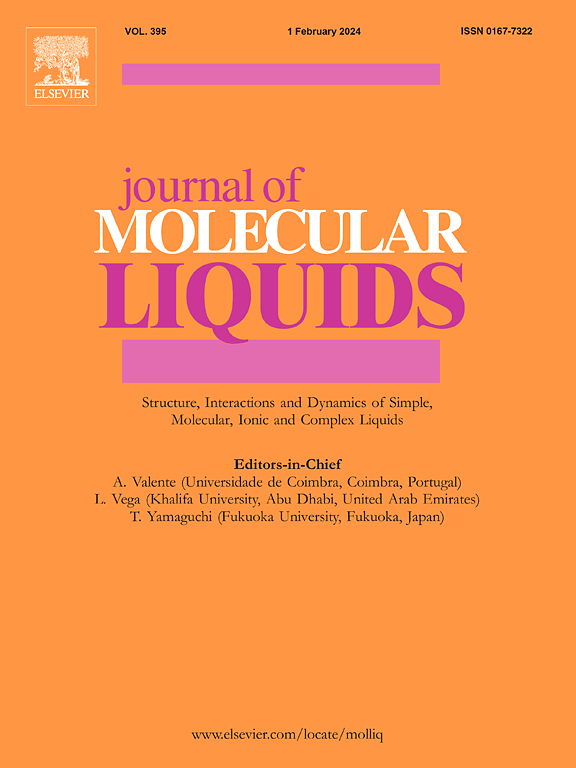The improvement and influence mechanism of non-ionic surfactants on the extraction and expansion effects of CO2 on alkanes: Experimental and simulation approach
IF 5.3
2区 化学
Q2 CHEMISTRY, PHYSICAL
引用次数: 0
Abstract
The extraction and expansion effects are crucial mechanism for enhancing oil recovery (EOR) during CO2 injection. It is usually hard to distinguish the extraction and expansion effects of CO2 on oil because the both impacts are occurring simultaneously. In this work, the extraction and expansion effects of CO2 on alkane were quantitatively distinguished and investigated. Moreover, the influence of CO2-philic surfactants on the extraction and expansion effects, and the microscopic mechanism were examined through experiments and molecular dynamics simulations. The results show that with the increase of pressure, the extraction and expansion effects of CO2 on hexadecane and white oil both gradually strengthen. Compared with hexadecane, the alkane molecules with long carbon chains exhibit stronger intermolecular interaction forces, making it difficult for CO2 to enter the intermolecular space of the alkanes, which reduces the solubility of CO2 in alkanes, as well as the extraction and expansion effects. Among the CO2-philic surfactants, C4EO3PO6 and C4PO6 can effectively promote the extraction and expansion effects of CO2. Meanwhile, the surfactants added to the CO2 phase can rapidly diffuse to the interface between CO2 and oil, to improve the mutual dissolution of CO2 and oil molecules. Surfactants can effectively promote both the dissolution of CO2 into the alkane phase and the diffusion of alkanes into the CO2 phase, as well as increase the dispersion force between CO2 and hexadecane molecules and the diffusion coefficient of CO2 in alkanes. This is the main mechanism of surfactants to enhance the extraction and expansion effects of CO2.
求助全文
约1分钟内获得全文
求助全文
来源期刊

Journal of Molecular Liquids
化学-物理:原子、分子和化学物理
CiteScore
10.30
自引率
16.70%
发文量
2597
审稿时长
78 days
期刊介绍:
The journal includes papers in the following areas:
– Simple organic liquids and mixtures
– Ionic liquids
– Surfactant solutions (including micelles and vesicles) and liquid interfaces
– Colloidal solutions and nanoparticles
– Thermotropic and lyotropic liquid crystals
– Ferrofluids
– Water, aqueous solutions and other hydrogen-bonded liquids
– Lubricants, polymer solutions and melts
– Molten metals and salts
– Phase transitions and critical phenomena in liquids and confined fluids
– Self assembly in complex liquids.– Biomolecules in solution
The emphasis is on the molecular (or microscopic) understanding of particular liquids or liquid systems, especially concerning structure, dynamics and intermolecular forces. The experimental techniques used may include:
– Conventional spectroscopy (mid-IR and far-IR, Raman, NMR, etc.)
– Non-linear optics and time resolved spectroscopy (psec, fsec, asec, ISRS, etc.)
– Light scattering (Rayleigh, Brillouin, PCS, etc.)
– Dielectric relaxation
– X-ray and neutron scattering and diffraction.
Experimental studies, computer simulations (MD or MC) and analytical theory will be considered for publication; papers just reporting experimental results that do not contribute to the understanding of the fundamentals of molecular and ionic liquids will not be accepted. Only papers of a non-routine nature and advancing the field will be considered for publication.
 求助内容:
求助内容: 应助结果提醒方式:
应助结果提醒方式:


